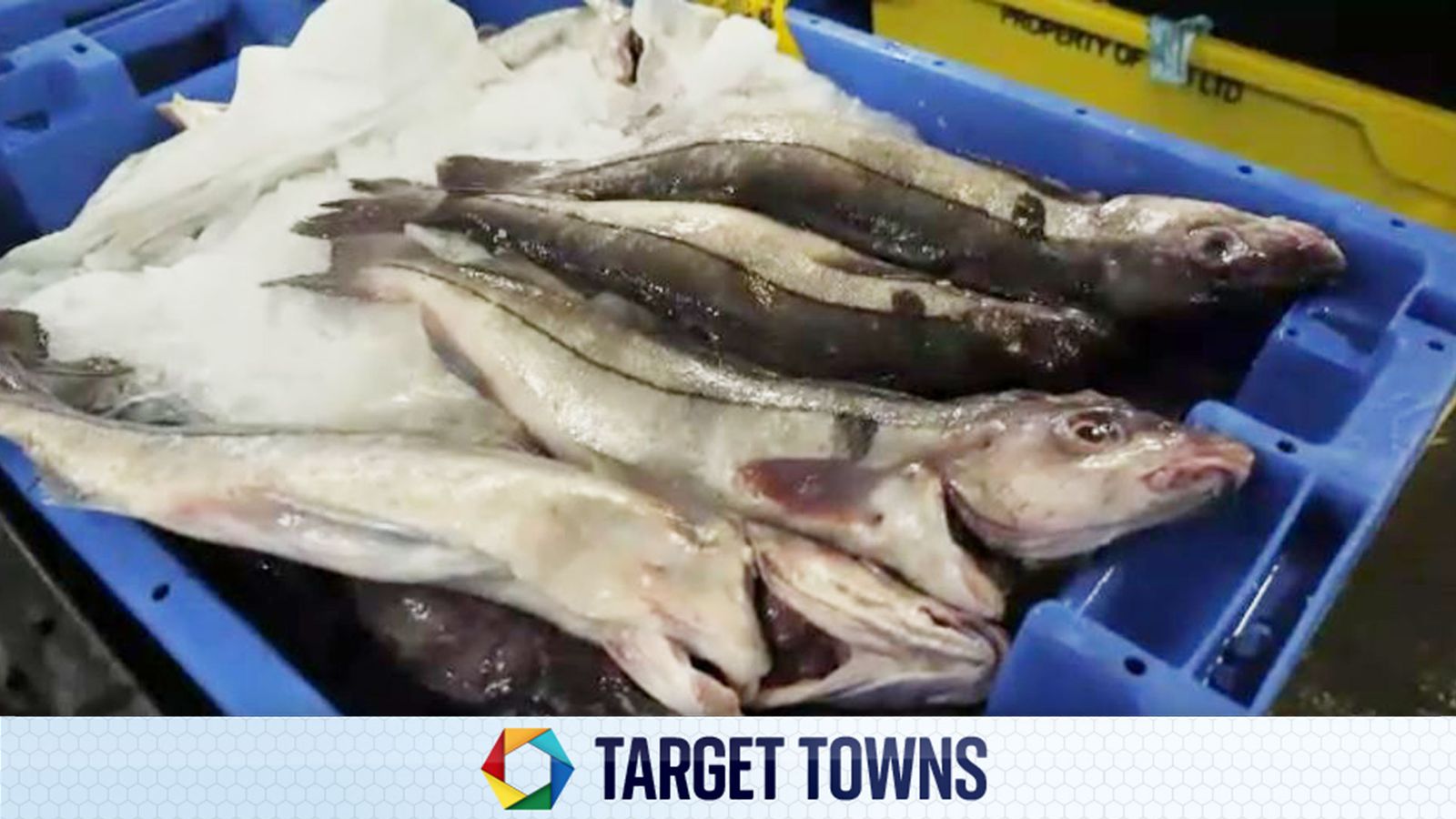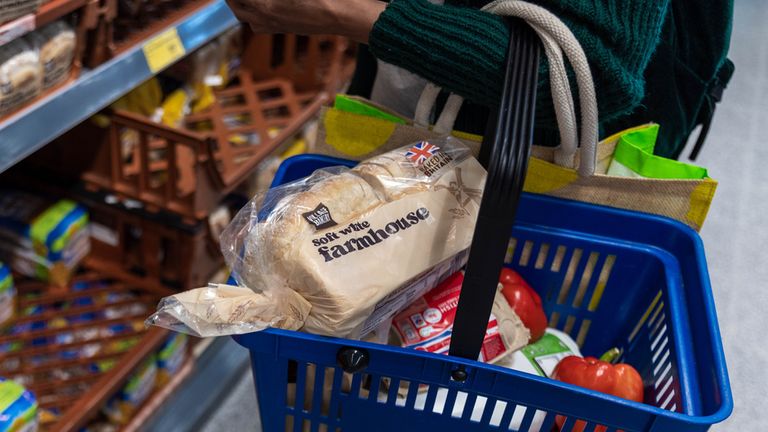Often when we talk about statistics like inflation they have a tendency to sound rather dry and boring.
After all, data is an abstraction, an aggregation of numbers which often seems quite disconnected with our everyday lives.
But prices are ultimately an incredibly important way of measuring what’s going on in the economy. They are the critical point where supply and demand meet – where sellers learn how much buyers are willing to pay for an item.
And there’s no better place to see this embodied than at an auction. These are the places where, in the most literal of senses, “price discovery”, as economists call it, takes place.
So it was no coincidence that we visited Grimsby Fish Market, one of the most important fish auction houses in the country, this morning, to coincide with the release of the latest UK inflation figures.
In the space of about 20 minutes, the market conducts a series of auctions, with buyers crowded round crates of haddock, cod, halibut and so on, and the seller calling out an ever ascending series of prices to see what the wholesalers are willing to pay.
This is the beginning of a process which ends up determining how much you will pay at the supermarket or in a restaurant for your next fish and chips. And as it happens, fish prices are more or less the same now as they were a year ago – actually according to the Office for National Statistics the going price for domestic fish is down 1.2% in the year to February.
But like everything else in the “shopping basket” that constitutes the overall inflation rate, fish prices have been on something of a roller coaster in recent years. As the cost of everything else – the fuel for trawlers, the paper for packaging, the wages for fishermen – went up, so too did fish prices. In early 2022, fish inflation was nearly 30%.
Read more on Target Towns:
We were promised something different but it just hasn’t materialised’
If the budget was designed to win back votes, it fell short in Grimsby and Cleethorpes
The point here being that while inflation – the rate at which prices are up in the past year – is now down, that doesn’t mean prices are down. Quite the contrary: they’re still much higher (for fish and for pretty much everything else) today than they were a couple of years ago. The inflation crisis may be coming to an end but the cost of living crisis is not.
That speaks to a broader point. We are, as a nation, poorer than we were a few years ago, largely because the cost of our energy (something we mostly import) is still higher. Households are still squeezed, not just by the fact that their weekly shop is more than it was a few years ago but by a host of other pressures: energy bills, mortgage interest bills.
That’s problematic for the chancellor, who is desperately hoping people start to feel a bit more optimistic about the economy this year – for reasons you can probably guess at.
Perhaps that will indeed happen, especially if and when inflation drops further in the coming months (it’s expected to drop to 2% later this spring).
But lower inflation doesn’t automatically mean people feel better off. The feel good factor still has yet to return to the UK economy.


